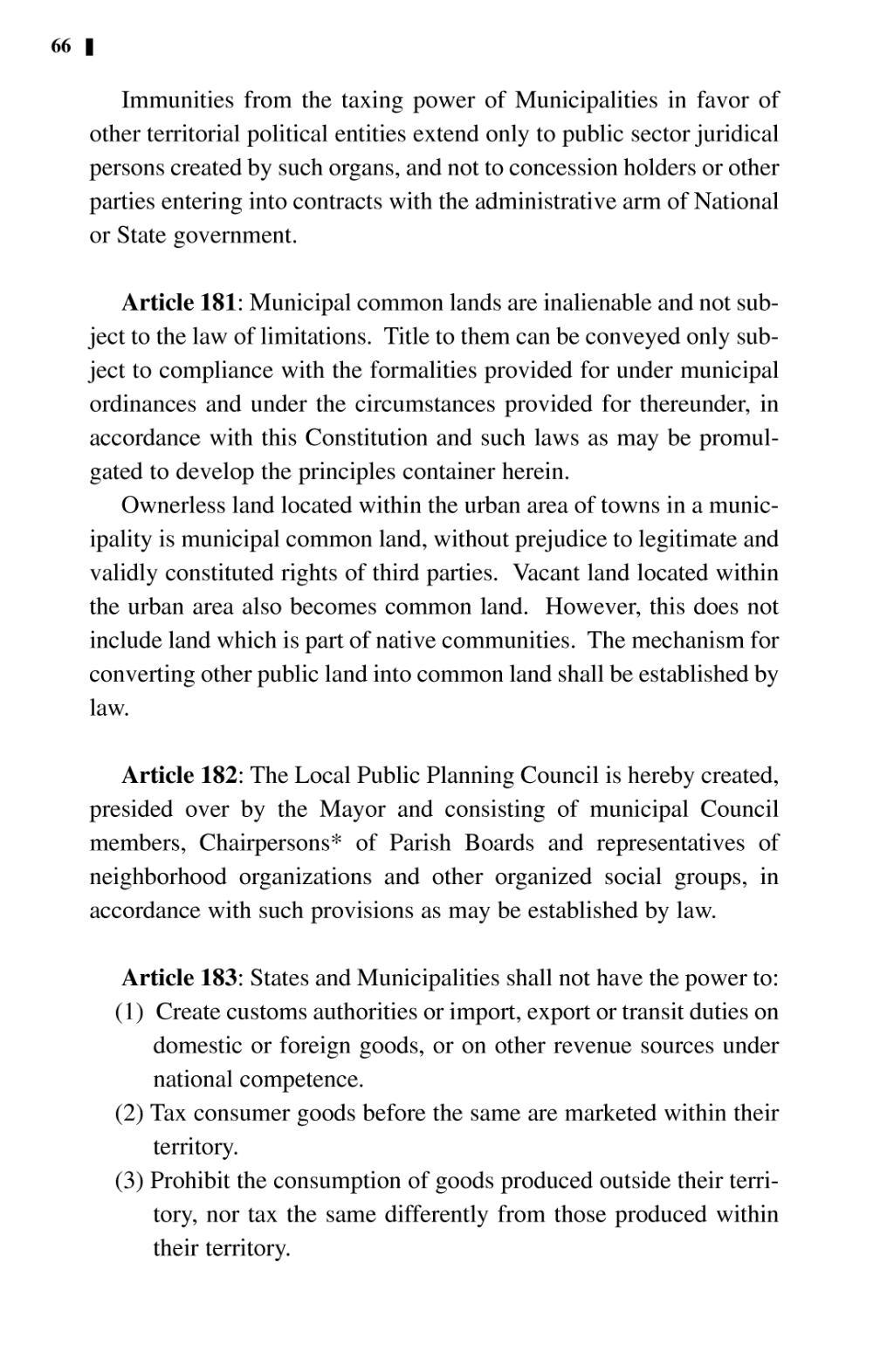Immunities from the taxing power of Municipalities in favor of other territorial political entities extend only to public sector juridical persons created by such organs, and not to concession holders or other parties entering into contracts with the administrative arm of National or State government.
Article 181: Municipal common lands are inalienable and not subject to the law of limitations. Title to them can be conveyed only subject to compliance with the formalities provided for under municipal ordinances and under the circumstances provided for thereunder, in accordance with this Constitution and such laws as may be promulgated to develop the principles container herein.
Ownerless land located within the urban area of towns in a municipality is municipal common land, without prejudice to legitimate and validly constituted rights of third parties. Vacant land located within the urban area also becomes common land. However, this does not include land which is part of native communities. The mechanism for converting other public land into common land shall be established by law.
Article 182: The Local Public Planning Council is hereby created,
presided over by the Mayor and consisting of municipal Council
members, Chairpersons* of Parish Boards and representatives of
neighborhood organizations and other organized social groups, in
accordance with such provisions as may be established by law.
Article 183: States and Municipalities shall not have the power to:
- (1) Create customs authorities or import, export or transit duties on domestic or foreign goods, or on other revenue sources under national competence.
- (2) Tax consumer goods before the same are marketed within their territory.
- (3) Prohibit the consumption of goods produced outside their territory, nor tax the same differently from those produced within their territory.
